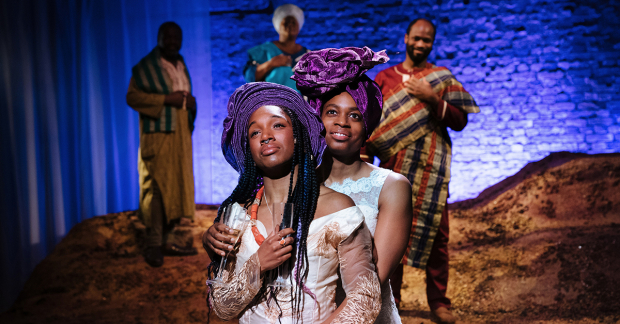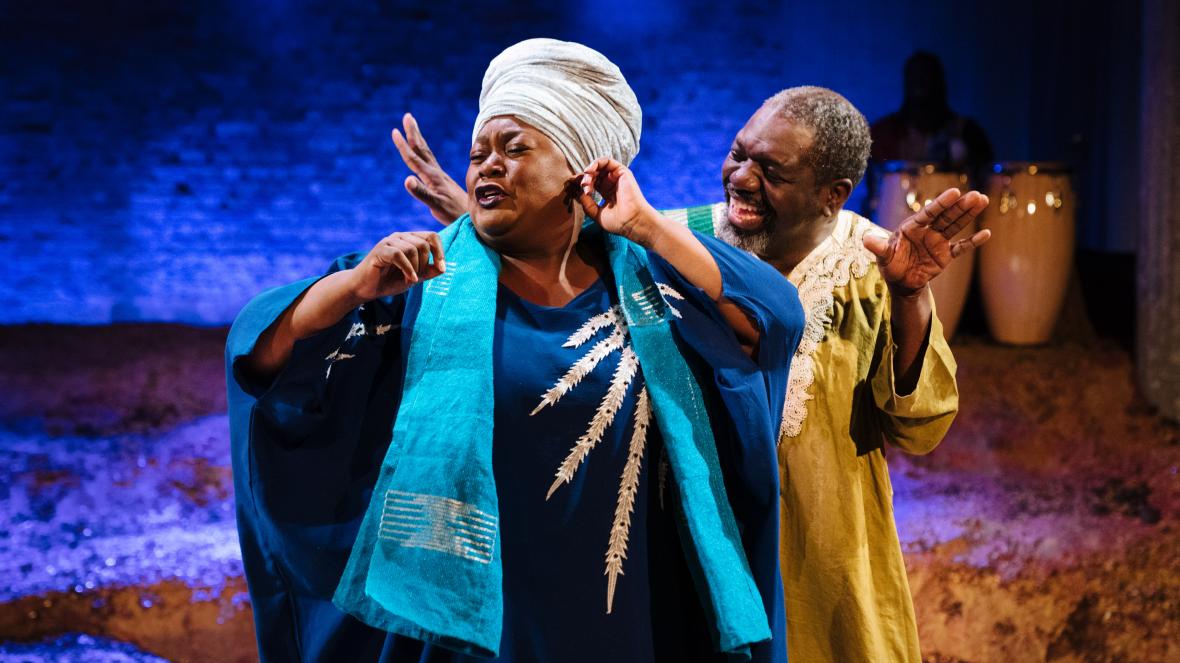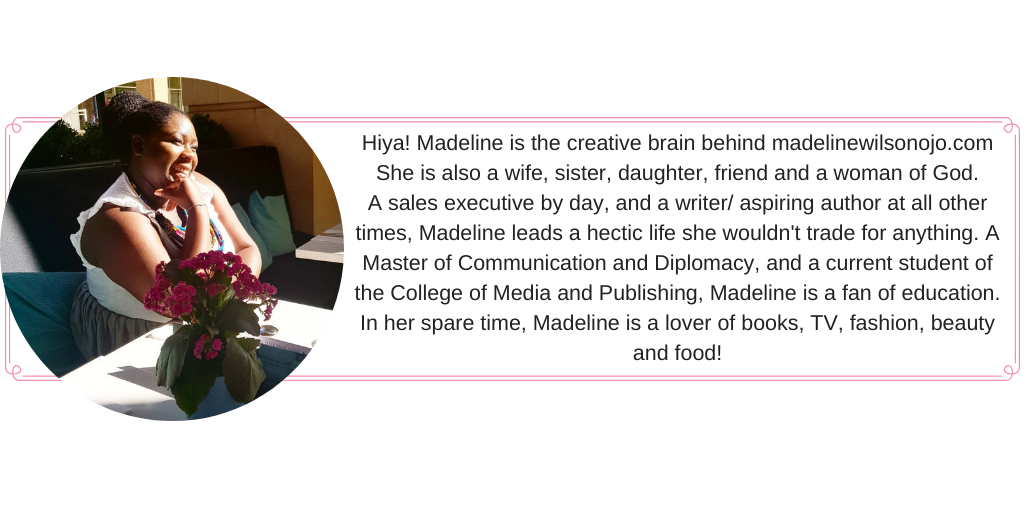
Last week I had the absolute pleasure of seeing The High Table, a play written by Temi Wilkey and directed by Daniel Bailey, at the Bush Theatre.
When the play opens up, we are somewhere between Ayé and Orun. Three ancestors have been awoken from their afterlife slumber. Their descendant is getting married and they’re not sure whether to bless her union or not. Withholding their blessings would mean their daughter’s wedding not going ahead. On the contrary, a blessing would lead to their descendant being free to live the life that will bring her happiness and fulfilment.
The gaudy sound of a talking drum and some clever light tricks transports us to Ayé (or earth) – somewhere in London to be more specific. Omotara, affectionately known as Tara, has invited her friend Leah to her parents’ home for the evening. Tara’s parents have always liked Leah but things quickly turn sour when Tara reveals Leah is much more than a friend and that the two are actually planning their wedding.
You may also want to read: Film Review | A Fall from Grace
“Ahn ahn! Omotara this one is an abomination now! It is not our way!” And with that, Tara’s parents shut down any talk of nuptials. As far as they are concerned, the kind of relationship their daughter has with Leah is a disgrace to their family and community. With her parents’ rejection of her ‘lifestyle’, Tara is left struggling to fully commit to the wedding preparations. Her relationship with Leah breaks down completely and the wedding is called off.
More drums, more “on and off” of the stage lights and we’re back to the ancestral plains, or Orun. The ancestors have been watching and listening closely to everything that is transpiring in Ayé. Unless they vote unanimously to bless Tara’s engagement to Leah the wedding will remain called off. But they are split in their decision.
What events need to take place to get Tara’s ancestors all on the same side? Will they ever reach a harmonious decision? What family secrets are yet to come out?

Homosexuality is an uneasy topic to deal with in African communities that also tend to be largely religious. But my biggest takeaway is that long before the European invasion and colonisation of Africa, same-sex relationships were seen as sacred. It also brought to the fore the fact that secrets lie within the bed of every family.
Despite the serious theme, the tone of the play is for the most part humorous. However, the register becomes dark when the story turns to the suicide of a family member in Lagos, Nigeria who’s unable to cope with being gay in a society where his existence is illegal.
“The High Table is an enthralling story about culture, love, hate, acceptance, forgiveness, and death. But most of all it’s about coming out and coming out together.”
I loved the fact that the actors who play the ancestors, also double down as their living descendants. It pays homage to the Yoruba belief of Atunwa (reincarnation). The names Babatunde, Yetunde (the names of two of the ancestors) immediately signals to anyone who understands Yoruba that they have had multiple experiences on earth.
The set and costumes are an absolute feast for the eyes. The production is colourful and one of high energy. What other play have you seen, where the cast and audience come together on the stage to do the electric slide?
The High Table’s storyline, custome and set at the @bushtheatre was bold. I haven’t seen theatre like it before. When was the last time you saw a show end like this? pic.twitter.com/8WYVZMz5wD
— Madeline 🇬🇭🇬🇧 (@madelinewblogs) February 15, 2020
If you live in London or will be visiting in the next few weeks, please go and see The High Table. Performances will be running until the 21st March. More information can be found at bushtheatre.co.uk
Five Copywriting Secrets
Get Hired with No Experience / CV Bundle
Blog for a Year (52 unique blog titles!)

